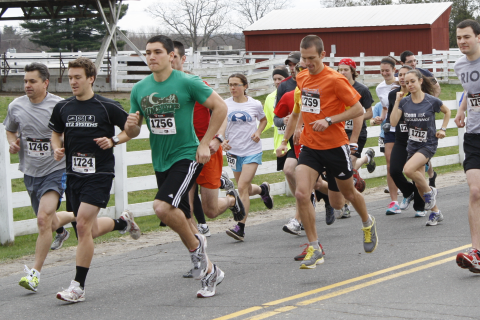IGNITE Challenge – Competition to Win $10,000 towards Environmental Initiatives and Awareness
What is the opportunity?
The Ignite challenge is UConn’s first crowdfunding competition that gives UConn students and young alumni the opportunity to follow, connect with, and support causes at UConn they are most passionate about. UConn alumnus, David Barton ’61, is helping sponsor the competition to promote philanthropy and to engage campus wide participation. Selected groups will compete for donors and awards, with the top prize of $10,000 to a supported cause that will benefit the UConn community.
Who benefits?
All donations for our cause will directly go to the Campus Sustainability Fund. The Campus Sustainability Fund supports programs and initiatives that raise environmental awareness and develop conservation-minded students. Through demonstration projects like green roofs, renewable energy and biofuels, recycling and composting enhancements, campus bicycling amenities, water and energy conservation competitions, and donating reusable goods to community partners, students learn to be environmental stewards and positively contribute to society.
The Campus Sustainability Fund was enacted to provide part of the necessary capital to aid the Sustainability Office in its efforts to meet this aggressive goal to become a sustainable campus. Continuing to build a sustainable campus and creating a culture of environmental stewardship among students will require an upgrade of the University’s resources dedicated to sustainability and specifically, the further development of the Sustainability Office within the OEP. Support of the fund will ensure that UConn will continue to be a leader in sustainability within the state and throughout the country.
Why this is important?
The Ignite Challenge is the first opportunity we have had to raise significant money through a donation for the Campus Sustainability Fund (“CSF”). The CSF in recent years has been short of external funds, which are crucial to financially supporting many of our environmental initiatives at UConn. UConn has made significant progress as a top green university with the recent Sierra Club ranking placing UConn as the top 5 greenest college campus, but we need continued support.
How to participate?
Groups were pre-selected to participate in the Ignite challenge through an application process. The Office of Environmental Policy’s cause is to support Environmental Awareness and Initiatives at UConn through the cause “Students 4 Sustainability.” If you are passionate about environmental issues and would like to help your university continue its sustainability efforts, please sign up as a donor today! Winning causes will be selected based on the highest number of student and young alumni* donor participants, not on the sum of dollars raised.
*Young alumni include Graduates of the Last Decade (2003-2013)
How YOU can Donate to our cause, “Students 4 Sustainability”
There are a variety of ways to donate to our cause for the IGNITE challenge, below are some of the possibilities.
- Visit our webpage at http://www.ignite.kintera.org/students4sustainability
- Text2Give: Text 5055 with the following phrase:
- For students: “uconn earth [your first and last name] [peoplesoft]”
- For young alumni: “uconn earth [your first and last name] [graduation year]”
- Respond YES when asked to confirm your $10 donation in a follow-up text message that you will receive. This gift will support the cause “STUDENTS 4 SUSTAINABILITY”
*More information of Text2Give can be found here: http://www.foundation.uconn.edu/text-donations.html
When is the competition?
The competition spans from February 1 – May 3, 2013
Thank you for your continued support. Remember to Go Green and Stay Blue!
For more information on the Campus Sustainability Fund, or the Ignite Challenge please visit:
http://www.ecohusky.uconn.edu/about/csf.html
http://www.foundation.uconn.edu/studentgiving/index.html
Important Disclosures:
$10.00 donation to support the University of Connecticut Foundation through the mGive Charges will appear on your wireless bill, or be deducted from your prepaid balance. All purchases must be authorized by account holder. Must be 18 years of age or have parental permission to participate. Message and Data Rates May Apply. Text STOP to 50555 to STOP. Text HELP to 50555 for HELP. Full Terms and Privacy Policy: s.uconn.edu/txt. Foundation.
Your gift to Students 4 Sustainability will be administered by the UConn Foundation, Inc. and deposited into the Campus Sustainability Fund (#22701). Donations will be used to support programs, projects, supplies, equipment, staffing and related expenses needed to develop, coordinate, promote, carry out, measure and report about UConn’s system-wide campus sustainability initiatives.




